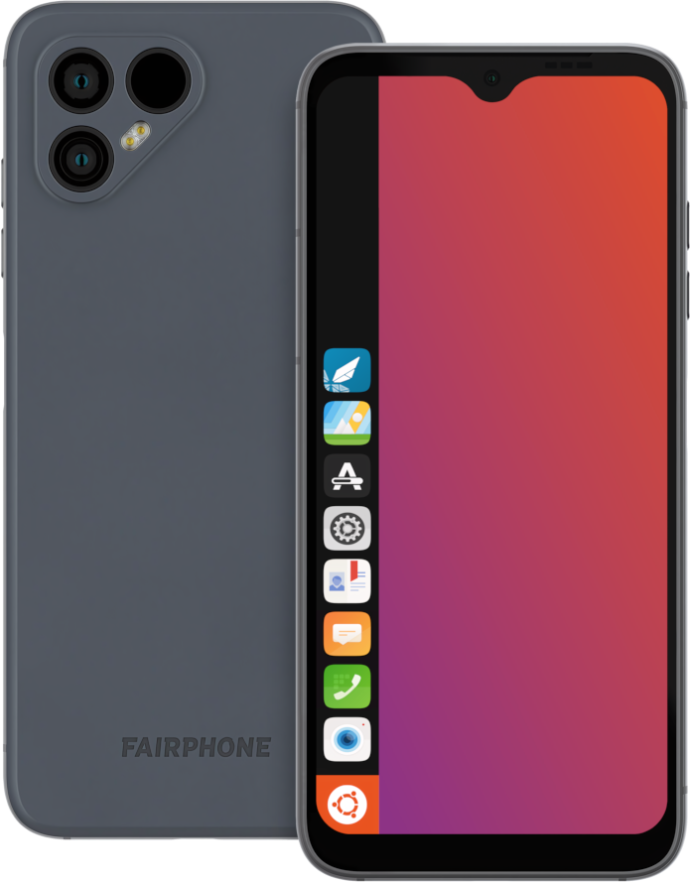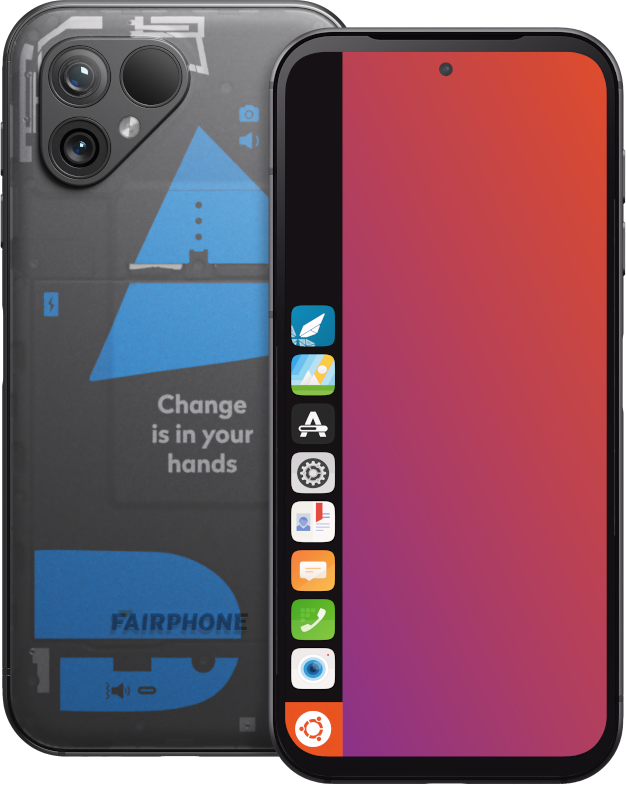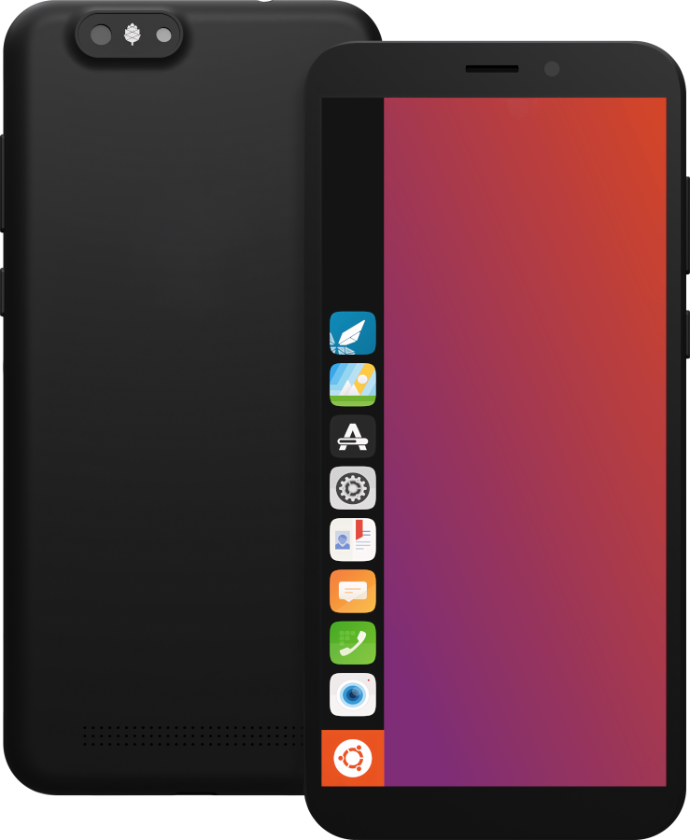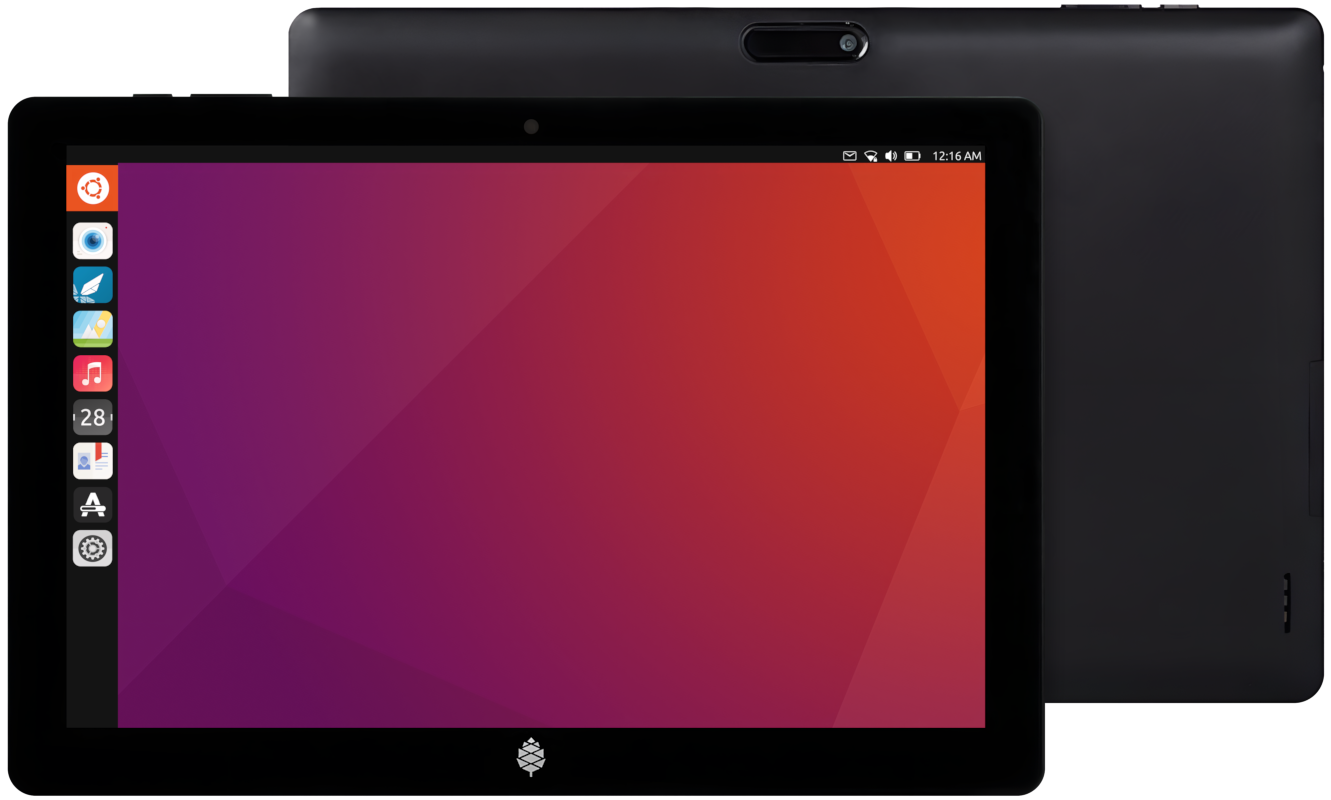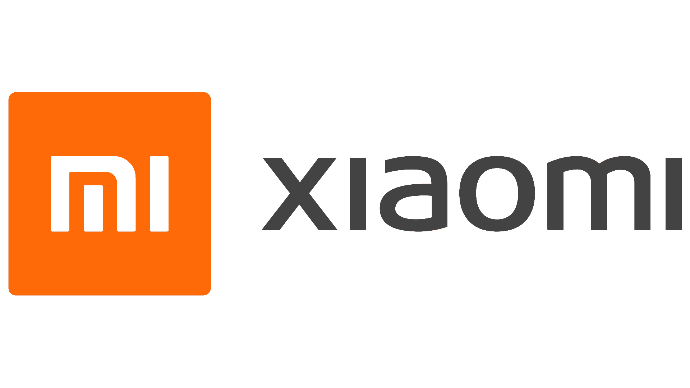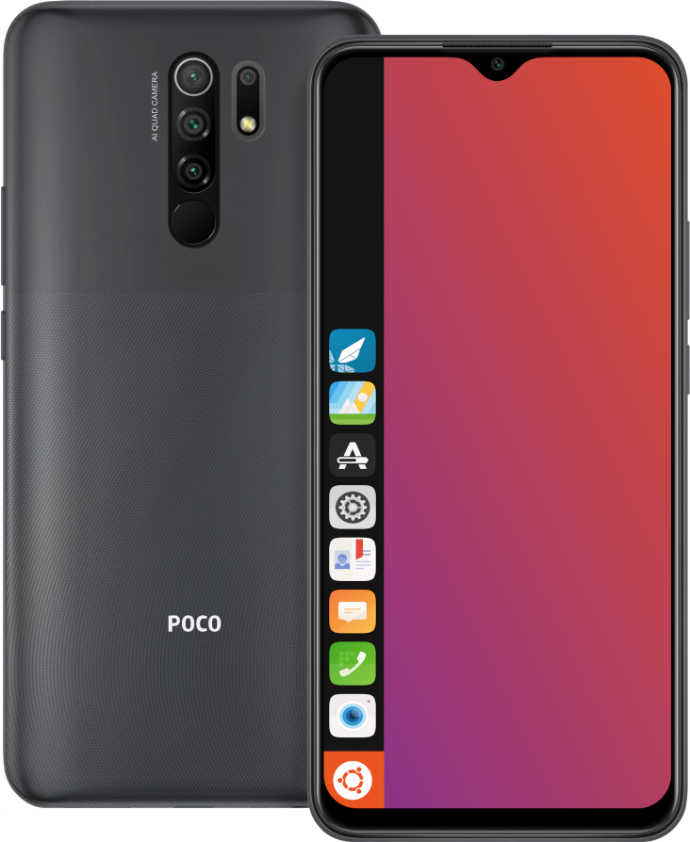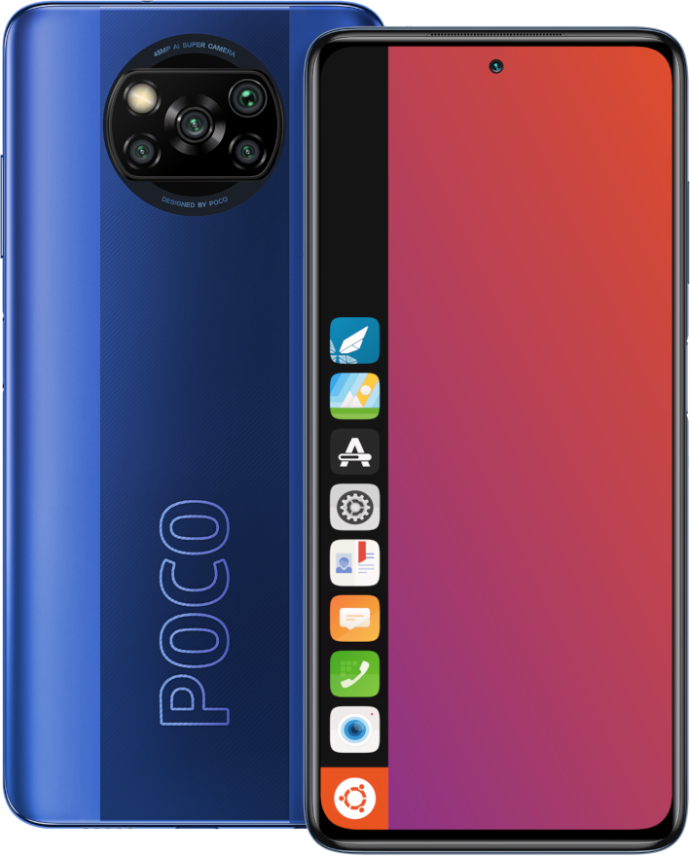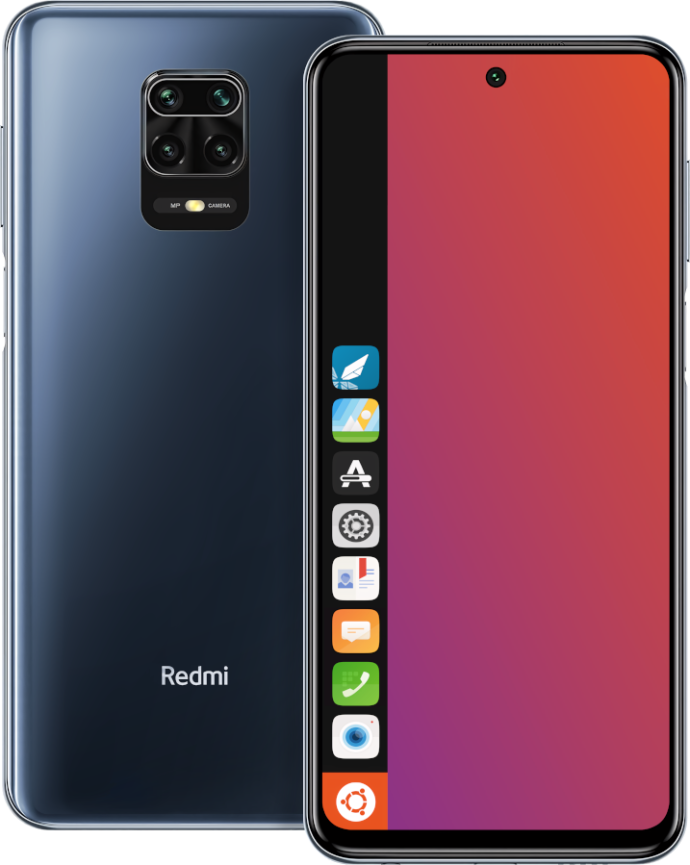Community Devices
Community devices include smartphones, tablets, and laptops that are the primary focus of the core UBports development team and are developed and maintained by the community. While not guaranteed, these devices have a higher chance of working smoothly with each update and upgrade.
If you need a reliable daily driver and our commercial devices featured devices don't meet your needs, take a look at our community devices for a dependable Ubuntu Touch experience.
Ubuntu Touch and Fairphone share a common vision: putting users first. Fairphone empowers its users by offering the freedom to install alternative operating systems, including Ubuntu Touch. We fully support Fairphone’s commitment to ethical values and modular design, which align with our principles. Like the Pixel, Fairphone devices support HDMI out, enabling true convergence when connected to a dock or monitor, allowing Ubuntu Touch to seamlessly transition into desktop mode. Once the bootloader is unlocked and Ubuntu Touch is installed, Fairphone devices provide one of the best-supported and most complete user experiences.
Powered by Qualcomm Snapdragon SoC's.
Ubuntu Touch and Fairphone share a common vision: putting users first. Fairphone empowers its users by offering the freedom to install alternative operating systems, including Ubuntu Touch. We fully support Fairphone’s commitment to ethical values and modular design, which align with our principles. Like the Pixel, Fairphone devices support HDMI out, enabling true convergence when connected to a dock or monitor, allowing Ubuntu Touch to seamlessly transition into desktop mode. Once the bootloader is unlocked and Ubuntu Touch is installed, Fairphone devices provide one of the best-supported and most complete user experiences.
Powered by Qualcomm Snapdragon SoC's.
Built by developers for early adopters. If you value community development and you don't want to use a translation layer to run Ubuntu Touch on devices built for Android, Pine64 offers phones and tablets built to run natively with mainline Linux.
NOTE: This hardware is years old. We cannot guarantee a smooth experience and we recommend our Pre-installed devices if you're looking for the easiest and most up-to-date devices.
Powered by ARM Cortex A53 SoC's.
When it comes to reference devices, no other series stands out more than Google's Pixel line. These devices have become the standard for OEMs and mobile software communities, offering cutting-edge hardware paired with the latest Android software. With limited native Linux mobile hardware available, Pixel devices provide crucial insights for developing projects like the HALium layer, which bridges Android kernels and Linux-based systems like Ubuntu Touch. Nexus and Pixel devices have been favored since the early days of Ubuntu Touch development, with the Pixel 3A being a standout example. Thanks to its Qualcomm Snapdragon 670 chipset and Alfred Neumayer's dedicated efforts, the Pixel 3A remains a top-performing device for Ubuntu Touch users today.
Powered by Qualcomm Snapdragon SoC's.
When it comes to reference devices, no other series stands out more than Google's Pixel line. These devices have become the standard for OEMs and mobile software communities, offering cutting-edge hardware paired with the latest Android software. With limited native Linux mobile hardware available, Pixel devices provide crucial insights for developing projects like the HALium layer, which bridges Android kernels and Linux-based systems like Ubuntu Touch. Nexus and Pixel devices have been favored since the early days of Ubuntu Touch development, with the Pixel 3A being a standout example. Thanks to its Qualcomm Snapdragon 670 chipset and Alfred Neumayer's dedicated efforts, the Pixel 3A remains a top-performing device for Ubuntu Touch users today.
Powered by Qualcomm Snapdragon SoC's.
Xiaomi devices have long enjoyed broad adoption around the entire world. While pretty popular in the west, Xiaomi devices are extremely popular in China, India and South-East Asia. They provide a lot of features and very good hardware specs for a very competitive price. Xiaomi themselves also allow people to run custom operating systems thanks to their MiFlash tool, which supports all Xiaomi and Poco devices. The current Ubuntu Touch ports for Xiaomi devices also run very well, which makes them a good and affordable option for many.
Note: Xiaomi devices require a computer running Windows to unlock. This is because Xiaomi's MiFlash Tool only runs within Windows.
Powered by Qualcomm Snapdragon SoC's.
Xiaomi devices have long enjoyed broad adoption around the entire world. While pretty popular in the west, Xiaomi devices are extremely popular in China, India and South-East Asia. They provide a lot of features and very good hardware specs for a very competitive price. Xiaomi themselves also allow people to run custom operating systems thanks to their MiFlash tool, which supports all Xiaomi and Poco devices. The current Ubuntu Touch ports for Xiaomi devices also run very well, which makes them a good and affordable option for many.
Note: Xiaomi devices require a computer running Windows to unlock. This is because Xiaomi's MiFlash Tool only runs within Windows.
Powered by Qualcomm Snapdragon SoC's.


